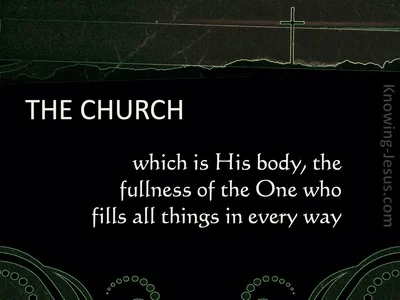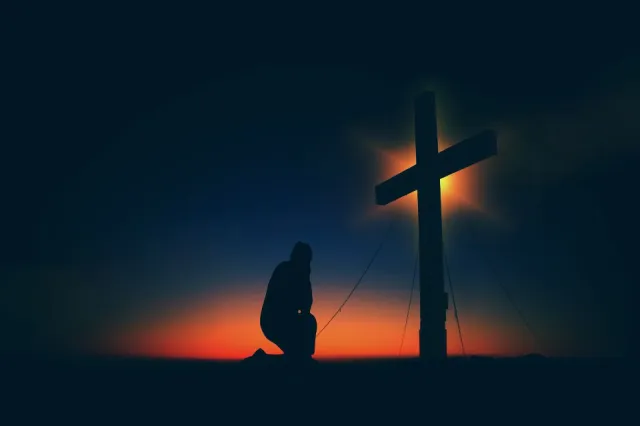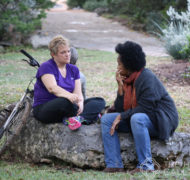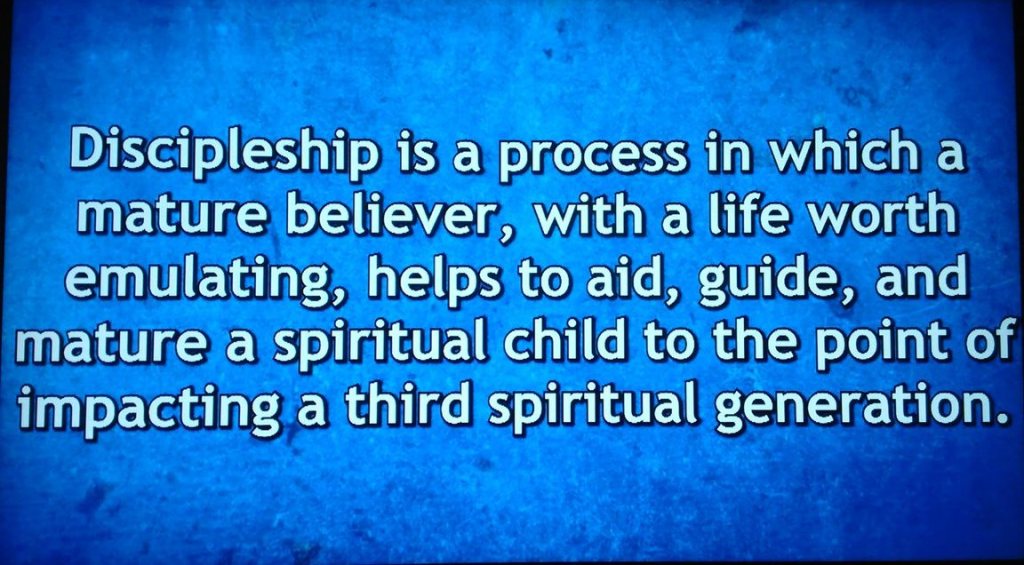
The title suggests that there is a disagreement between the Bride and the Body. The two titles have reference to “The Bride of Christ” and “The Body of Christ.” This study researches the Scriptures concerning the two.
The expression, “the Bride of Christ,” is not a term that can be found in the Bible. It does not occur one time in the Word of Truth. However, Bible commentators, for centuries, have made reference to the “Bride” and the “Body of Christ” as being the same. Even though generations have been accustomed to referring to the two as being the same, this does not make them the same. As a matter of fact, all that it does is to assume that tradition, and what is taken for granted, is TRUTH. The Bible says, “Thy Word is Truth.” Repetition of doctrine does not make it TRUTH. The age of doctrine does not make it TRUTH. It makes it TRADITION! We ought to treasure the Word of God more than we treasure the most cherished teaching if it is proved to be untrue by the Word.
The truth of the matter is that Christian fundamentalism has a great deal of their dogma devoted to “The Bride of Christ,” and we find so little Scripture even mentioning the word, “bride.” Only fourteen times, in the entire testimony of Scripture, do we find the word, “bride,” even mentioned. Only five times, out of the fourteen, is the word, “bride,” mentioned in the New Testament. It is mentioned once in John’s Gospel and four times in John’s “Revelation of Jesus Christ.”
1. “He that hath the bride is the bridegroom: but the friend of the bridegroom, which standeth and heareth him, rejoiceth greatly because of the bridegroom’s voice: this my joy therefore is fulfilled” (John 3:29).
John 3 28 helps identify “The Christ” as the bridegroom, John the Baptist as the friend of the bridegroom, but nothing identifies the “bride.”
2. In Revelation 18:21, we find a reference to Mystery Babylon: “that great city Babylon” shall be “thrown down, and shall be found no more at all.” In plainer words, Jerusalem shall be “found no more” as Babylon, the Mother of Harlots. The great city having been destroyed no longer will be heard the voices of harpers, musicians, pipers, and trumpeters (Vs. 22). “…the voice of the bridegroom and of the bride shall be heard no more at all …” (Vs.23). This reference is that of the counterfeit bride and bridegroom. A New Jerusalem will be established (Revelation 21:2).
3. John wrote in Revelation 21:2 that he saw “the Holy City, New Jerusalem coming down from God out of heaven, prepared as a bride adorned for her husband.” Verse 1 in Revelation 21 informs us that the Dispensation in view, in this section of the Book of Revelation, follows the Day of the LORD which will be the Day of God. All we know about the Day of God is found in Revelation 21:1 to Revelation 22:7. In Revelation 21:1, “a new heaven and a new earth” is seen as a replacement for the one mentioned in Isaiah 65 (which begins the Day of Christ).This new heaven and earth is not the same one as found in Isaiah 65:17. Isaiah 65 references the newly created heaven and earth which will have been created at the beginning of the Pre-Millennial Kingdom of God.
4. In Revelation 21:9, one of the seven angels shows John “the Bride, the LAMB’S WIFE. Verse 10, the next verse, clearly identifies the Lamb’s Wife as “the HOLY JERUSALEM: “And he [one of the seven angels] carried me[John] away in the spirit to a great and high mountain, and shewed me that great city, the HOLY JERUSALEM, descending out of heaven from God,” (Revelation 21:10). The Holy City mentioned, here, is either the “Lamb’s Wife,” or it represents or contains the Wife of the Lamb (which would be a Figure of Speech ─ a Metonymy of Subject).
5. The fifth and last reference to the word, “bride,” is found in Revelation 22:17; “And the Spirit and the bride say, Come. And let him that heareth say, Come. And let him that is athirst come. And whosoever will, let him take the water of life freely.”
The Apostle Paul never mentioned the great city,” Holy Jerusalem,” in any of his writings. In Galatians 4:26, he did mention “Jerusalem which is above is free, which is the mother of us all.” This Jerusalem he referred to, here, was in a Figure of Speech—an Allegory for the city during the time of his writing.
John 3:29 – He that hath the bride is the bridegroom:
Revelation 18:23 – … and the voice of the bridegroom and of the bride shall be heard no more …
The following references occur during the time-frame of the Day of God.
Revelation 21:2 – … the voice of the bridegroom and of the bride … prepared as a bride adorned for her husband.
Revelation 21:9-10 – … Come hither, I will shew thee the bride, the Lamb’s wife. ..and the angel “shewed me that great city …”
Revelation 22:17 – And the Spirit and the bride say, Come. ..
It is overlooked that the one man who the Lord chose to reveal the “Revelation of the Mystery” (Ephesians 3:3), the Apostle Paul, never mentioned the “Bride of Christ.” But, instead, He selected the Apostle John to use the word, “bride,” five times in the New Testament.
What has been pointed out, thus far, is the fact that the “bride” in the New Testament is identified as being espoused to “the bridegroom,” “the voice of the bride,” the “bride, the Lamb’s wife,” “The Holy City, New Jerusalem,” and the “Lamb’s Wife …that great City, the Holy Jerusalem.”
The Bride in Revelation 21 is very definitely a “city.” It is viewed as coming down from God out of Heaven. The Bride is associated with the Lamb. The Lord Jesus is never referred to in Paul’s Epistles as the “Lamb.” The word, “Lamb,” is tied to John’s writings and is significant in the Book of Revelation. Twenty-five times in the Book of Revelation the Lord Jesus Christ is referred to as the LAMB. In John’s Gospel, He is said to be “the Lamb of God”—in John 1:29 and 36. Because of these references to Christ as “the Lamb,” we can safely associate this title with Israel. The Church, which is His Body is not found in “Revelation.”
We can connect the Bride with the Lamb and the Holy City, New Jerusalem, but this language is foreign to the Church over which Christ Jesus is the Head (Ephesians 1:22-23).
Our task, now, is to find the Scripture that tells us, as clearly as possible, what company of believers will populate the Holy City, New Jerusalem. We will, purposely, avoid any attempt to find any Typology that likens the Church of the One Body, the One New Man (Ephesians 2:15-16), to that of becoming a female and, then, marrying Jesus Christ. We should take note that Truth for Today makes no mention of “types.”
Many Bible expositors teach doctrine based upon Typology. In many cases, the Typology they see are the creation of their own mental processes. To see “types” of the Church, which is His Body in the Old Testament is reading something into Scripture they want to see. But, it is not there. The same is true when most teachers see the “Church of God” [The Acts’ period calling] as being the “Ecclesia” which is the one revealed in THE MYSTERY. There is a huge difference between the two. The Apostle Paul clearly revealed that the MYSTERY, from the beginning of the world, “hath been HID IN GOD” (Ephesians 3:9) “which in other ages, WAS NOT MADE KNOWN to the sons of men” (Ephesians 3:5). The Apostle stated, furthermore, that the Mystery “hath been HID FROM AGES AND GENERATIONS” (Colossians 1:16).
The Church, which is His Body was not hid in the Old Testament, nor was it hid during “The Acts of the Apostles.” For something to be hid, it must be present—but out of sight. The “unsearchable riches of Christ” (Ephesians 3:8) are UNSEARCHABLE. The Scriptures can be searched, but no trace of the Church of the One Body, the One New Man can be found until Paul said, “it is NOW revealed” (Colossians 1:26).
As we wrote, our task is to determine who will be the inhabitants (citizens) of this future Holy City, New Jerusalem. This City, which is seen coming from God out of Heaven, is the Bride of the Lamb. As such, it will be the City of God during the dispensation that follows the Day of the Lord—the Millennium. There will be a special company of believers who will be the permanent dwellers in this heavenly City—New Jerusalem, following the One-Thousand-Years of Christ’s reign on the earth. This turns us back to the Book of Hebrews.
A WALK BY FAITH
“By faith Abraham, when he was called to go out into a place which he should after receive for an inheritance, obeyed; and he went out, not knowing whither he went. By faith he sojourned in the land of promise, as in a strange country, dwelling in tabernacles with Isaac and Jacob, the heirs with him of the same promise: For he looked for a city which hath foundations, whose builder and maker is God” (Hebrews 11:8-10).
Here, it is learned that Abraham chose to walk “by faith” in the very land of promise as a “pilgrim” and a “stranger.” In plainer words, he believed God and lived in the “Promise Land” as a sojourner (i.e., to live somewhere temporarily). In the Land Abraham was to receive by Promise, he lived as one who was a temporary resident. He lived as if he were in a strange land, dwelling in tents. Isn’t that strange? In the very land God promised Abraham and his sons, Isaac and Jacob, they did not build mansions or palaces as their dwelling places. They lived in tents, always on the move. They did not “homestead” the land and settle down. They chose to be tent-dwellers. Why did Abraham so live? “For he [Abraham] looked for a city which hath foundations, whose Builder and Maker is God.”
In Genesis 12:1-7, the LORD [Yahweh] promised Abraham and his seed a land which was extensive enough to sustain a great nation. Additionally, in Genesis 15, the LORD told Abraham the Land was “unto thy seed,” and it was to extend from “the river of Egypt, unto the great river, the river Euphrates” (Verse 18).
We are told in Hebrews that Abraham “by faith sojourned in the LAND OF PROMISE, as in a strange country, dwelling in tabernacles (tents).” He was a man of wealth, and it is remarkable that he chose to dwell in tents, in the very Land Yahweh promised him. He weighed the temporal against the promise of God and chose the promise over the temporal. Do many of us have the faith of Abraham? Would we choose the hardships of this life in order to enjoy the reign with Christ in the ages to come? (2 Timothy 2:12). Abraham looked beyond his natural life.
He deliberately chose to live in the Land of promise as “a stranger and a pilgrim.” He did this “by faith.” That is, God told Abraham something, and Abraham believed God. “By faith” means to, simply, believe what God has said. The Book of Hebrews tells us what God told Abraham. The Old Testament doesn’t reveal this truth to us. The Jews’ religion knows nothing about the LORD’s additional revelation given to the hero of their religion. It is sad, indeed, that today’s Jews, who are devout in “their faith,” do not know the promise God made to Abraham of a “better country” (Hebrews 11:6) than the “Promise Land.”
Christians are privy to the grandeur of Abraham’s further promises which the Jewish Rabbis reject. They know only a small portion of the story of Abraham. Sadly, because of their stubbornness, or blindness, they refused to really believe the Law:
“Wherefore the Law was our [the Jews] schoolmaster to bring us unto Christ, that we might be justified by faith” (Galatians 3:24).
Because of the hardness of their hearts, the Jews failed to grasp the true joy of Habakkuk 2:4, “ …but the just shall live by his faith.” Yahweh prepared the Hebrews, through the Law, for over 1900 years in His effort to bring them to their Christ. Many students of the Scriptures overlook the fact that in-and-around Jerusalem, there were “thousands” of Jews who believed Jesus was their Messiah. Consider when Paul, Luke, and their companions met with the Church in Jerusalem, and Paul informed the rulers of the Church of God about his work among the Gentiles, we read:
“And when they [the Church rulers] heard it, they glorified the Lord, and said unto him [Paul], Thou seest, brother, how many thousands [murius = myriads] of Jews there are which believe; and they are all zealous of the Law” (Acts 21:20).
THE BETTER COUNTRY
Abraham lived in the Promised Land, not as a permanent resident, but as one who was only passing through. God had told Abraham that he could setttle down in the land he had been promised. The LORD led Abraham to the Land and could have said something to the effect as, “Here it is Abraham. The Land is yours and your seed. But, I’ll tell you something else. I have something for you and your seed if you want it. It is much better than this land. I am preparing a City. It is a heavenly City, and I Am the Builder and Maker of it. It will last forever. Now, you can build yourself a city, or you can let Me build one for you. In the City I build, you can live forever, BUT, you must live in tents in this land I promised you.” So, in order for Abraham to get the better country, he had to qualify! How? BY FAITH!
Abraham’s faith was demonstrated by the fact that he lived as a pilgrim and a sojourner, looking for the promised City whose Builder and Maker is God, “not having received the promises (re: the City), but having seen them afar off, and were persuaded of them, and embraced them, and confessed that [ he ] was a stranger and a pilgrim” (Hebrews 11:13).
“14 People who say such things show that they are looking for a country of their own. 15 If they had been thinking of the country they had left, they would have had opportunity to return. 16 Instead, they were longing for a better country ─ a heavenly one. Therefore God is not ashamed to be called their God, for He has prepared a city for them” (Hebrews 11:14-16). NIV
Abraham and others, “by faith,” saw that City [a better country] and believed God, that it would be BETTER, and that it would be far better to trust and believe HIM, and declare, “LORD, I believe YOU. The heavenly City You build will be far more of a blessing to me than any temporal blessing here in this Land. LORD [Yahweh],I want the City that You make. I am willing to move about in tents in the Promised Land as a stranger and a pilgrim.”
This City that Abraham saw, by faith, is identified in Hebrews 12:22 as “the City of the living God, the heavenly Jerusalem.” The City Abraham and the faithful of Hebrews 11 lived looking for was NEW JERUSALEM, the BRIDE that great City, HOLY JERUSALEM, the LAMB’S WIFE. These titles were Antonyms for the Promised City for the Great Cloud of Witnesses of Hebrews 11..
Abraham, Isaac, and Jacob had an unconditional promise of the Land of Palestine. But, they chose, instead, the higher calling. They were told about something better, and they embraced it, believing God. They chose to forego the “NOW” promise but rather, saw a promise afar off and were persuaded that they would be far better off than the temporal blessings in the Land. The promise was to all of Abraham’s physical seed. But, the promise of the Holy, heavenly City, New Jerusalem was to his spiritual seed, that is to say, to all who walked in the spiritual steps of Abraham. This promise of a “better country” was even for the Gentiles who were Christ’s. If the Gentiles were Christ’s, then, they “were Abraham’s seed, and heirs according to the promise” (Galatians 4:28-29). The blessings of the Gentiles, in association with Israel, were not kept secret. Notice:
“That the blessing of Abraham might come on the Gentiles through Jesus Christ; that we might receive the PROMISE of the Spirit through faith …Now to Abraham and his seed [spiritual not physical] were the PROMISES made…And if ye be Christ’s, then are ye Abraham’s seed, and heirs according to the PROMISE [concerning New Jerusalem]” (Galatians 3:14, 16, 29).
The Promise of the higher calling of Abraham was to come upon the Gentiles, meaning that they, too, could become partakers of this heavenly calling associated with an innumerable company of angels (Hebrews 12:22). This was an Old Testament fact. Gentiles would be blessed through faithful Abraham (Genesis 12:11-4). Paul explains this doctrine of his dual fatherhood in Romans 4:11; “And he [Abraham] received the sign of circumcision, a seal of the righteousness of the faith which he had yet being uncircumcised: that he might be the father of all them [Jew and Gentile] that believe, though they be not circumcised; that righteousness might be imputed unto them also.”
In plainer words, those who walked in the faithful steps of Abraham, believing the latest report from God, whether of the circumcision or the uncircumcision, will have Abraham as their spiritual father (Romans 4:12).
The hope of the Holy New Jerusalem was the hope of all who walked, by faith, like Abraham did. This Hope was in view during the earthly days of our Lord Jesus Christ, as well as, during “The Acts of the Apostles.” Thus, we understand why Paul made reference to Jerusalem which is above as “the mother of us all” (Galatians 4:26), and Abraham being the father of all that believe (Romans 4:16).
In the Book of Revelation, the “great City, the Holy Jerusalem, descending out of heaven from God,” will be the hope of the “overcomers.” This City will be distinctively Jewish but will, also, be populated with an innumerable company of people from other nations, to wit, Gentiles, who walk after the faith of Abraham. Jews will have the place of prominence in the heavenly City (see Revelation 21).
The City of the Living God (Hebrews 12:23) will be gained, or forfeited as was Esau’s birthright.
Those who will inhabit the Holy New Jerusalem (Revelation 21) will be those who not only have saving faith, but rather, the type of faith that “presses on to perfection” (Hebrew 6:1). The inhabitants of the “Bride” will be those who exhibited “overcoming faith.” Like Moses, those who “refused,” “chose,” “esteemed,” and “had respect unto the recompence of the reward”—these will be the dwellers in the Holy New Jerusalem we see in Revelation 21.
When the “new heaven and earth” replace the heavens and earth of the “Day of Christ” (Isaiah 65), this heavenly City descends to the new earth from having come down from God out of the new heaven. This is the one whose Builder and Maker will be God. Thus, at long last, God will dwell with men (Revelation 21:1-3). Like in God’s other Callings, this New Jerusalem will have two classes; those who “live” and those who “live and reign.” We can expect the Bride to be attended by “the virgins, her companions” (Psalm 45:14).
Common sense of “rightly dividing the Word of Truth” should prevail, proving that the BRIDE the LAMB’S WIFE is not the Church, which is His Body, the fullness of Him that fills all and in all.
~ END ~
http://www.plainerwords.com/artman2/publish/2012/The_Bride_or_the_Body_of_Christ.shtml
The Bride or the Body of Christ?
Posted in: 2012By Tom L. Ballinger
Jan 17, 2012 – 10:10:34 AM
Plainer Words Since 1968
January 12, 2012







